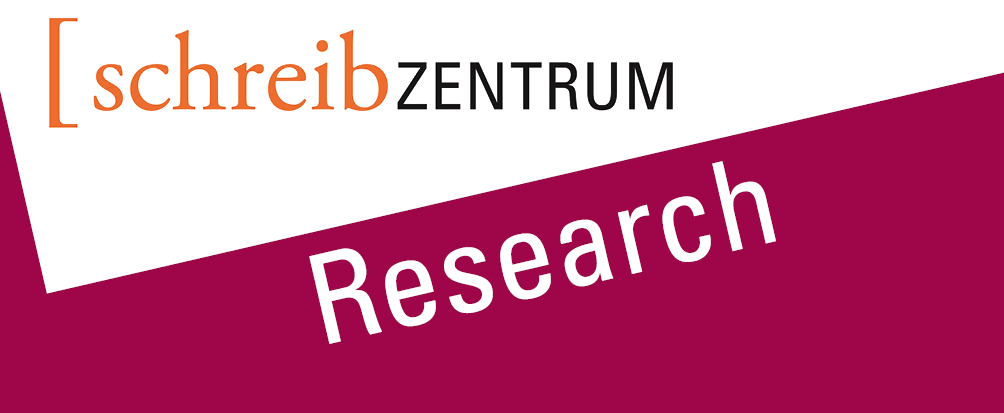- Ukraine crisis: information and assistance
- Forschung Frankfurt
- Research at Goethe University
- 2022/23 winter semester welcome and information
- International
- Netiquette for digital communication @Goethe University Frankfurt
- Mideast Conflict: Information on counseling and support services as well as related guidelines
- Knowledge Transfer at Goethe University Frankfurt
- ContentPage12
- Study
- Faculties
- About the University
- Intranet
- Conflict portal
- GU Home
- Forschung

Our staff and Peer Tutors are active in various areas of writing research. Among these are:
- Writing didactics
- Writing processes
- Writing Competencies
- Professional writing development
In the following you will find an overview of our current research projects.
Publications
You can download a complete list of publications and lectures by our staff and tutors here. You can also find the main research areas and central publications of our staff on our profile pages.
Contact
Please contact us if you have any questions about our current research:
Dr. Nora Hoffmann
Director of the Schreibzentrum
Telephone: + 49 (0)69-798-32846
E-Mail
Campus Westend
Norbert-Wollheim-Platz 1
IG-Farben-Gebäude, Raum 0.211
Research Accompanying the Writing Fellow Program
since WiSe 2015/16
Dr. Stephanie Dreyfürst (until 08.2018), Dr. Nora Hoffmann (from 11.2018) and Lena Opitz, LuQ - Stabsstelle für Lehre und Qualitätssicherung
With the help of questionnaires, students are asked at the beginning and end of the semester about their perceived writing competence, their previous writing experiences (e.g. frequency of texts already written) and about themselves (e.g. number of semesters, subject). At the end of the Writing Fellow course, they will also provide information on whether they have achieved the intended learning goals of the program and how they worked with the Writing Fellow. Teachers and Writing Fellows are asked to reflect on and evaluate the program by means of questionnaires with partially open questions. The survey uses, among other things, the learning goal-oriented evaluation of the Bielefeld Writing Laboratory (BILOE) and the questionnaire on self-efficacy expectations (Klingsiek/Golombek, see below).
Evidence-based conception of writing didactic approaches to supporting multilingual students
since 2014
Dr. Daniel Spielmann (until 12.2018), Anna Tilmans, MA (from 05.2019)
In the course of the internationalization of European higher education, the target group of multilingual students is receiving increased attention. At Goethe University Frankfurt, around a quarter bring a migration background - and thus multilingual experience - to their studies. For almost 10,000 students in Frankfurt, German is therefore not the only language available to them for engaging with the academic language German. This goes hand in hand with individual challenges and opportunities that are particularly important in academic writing. The research project, which was established in the 2014 summer semester, combines a decidedly didactic writing perspective with elements of language learning counseling. Within the framework of accompanying research, different theoretical approaches are linked. In addition to the development and testing of the concept, the aim is also the scientific evaluation and the feeding of the findings into the discourse community.
- Studying at Goethe University
- International applicants
- Faculties
- Overview of study programmes
- Programme for refugees
- GRADE
- Goethe Business School (continuing education)
- Research at Goethe University
- Scientific news
- Goethe Welcome Center (for international researchers)
- Collaborative research projects
- Individual research
- Visiting fellowships
- Endowed chairs
- About the University
- News-in-brief
- University administration
- Campus locations
- Campus life
- University archives (German)
- Rhine-Main-Universities






